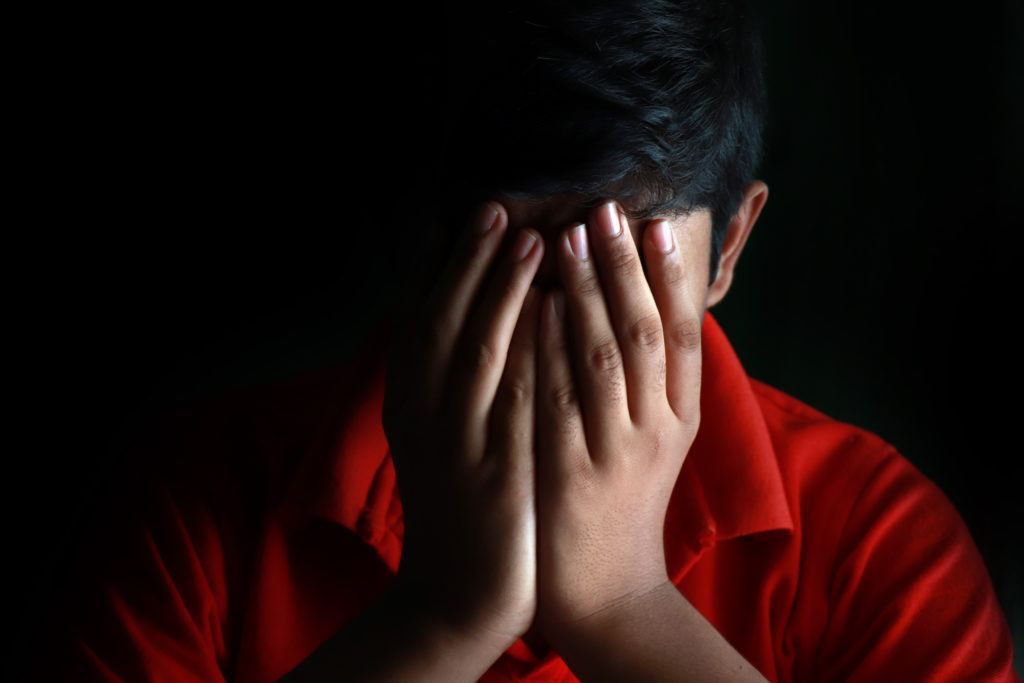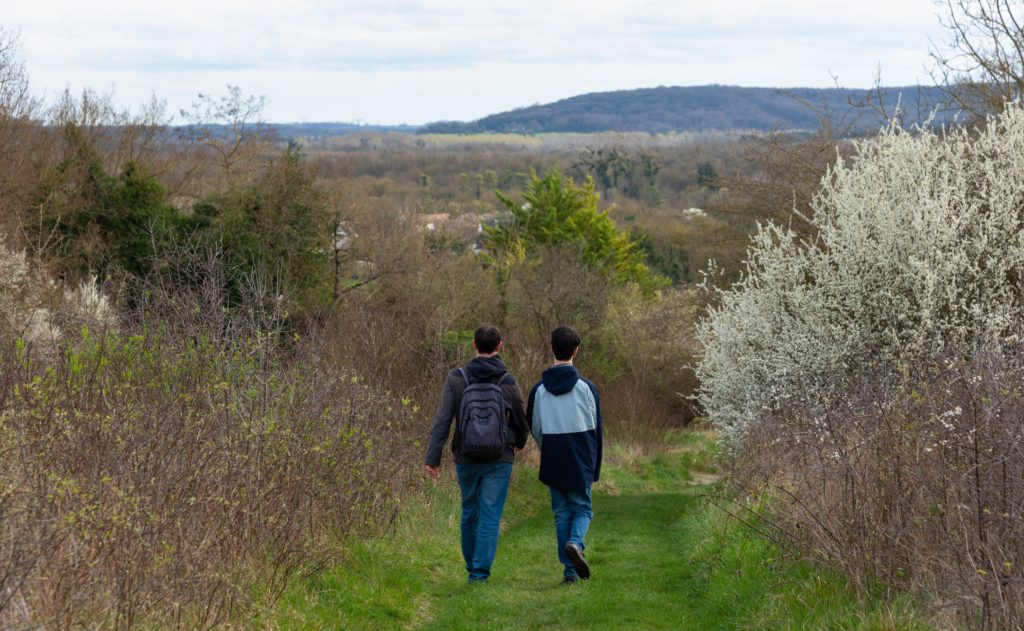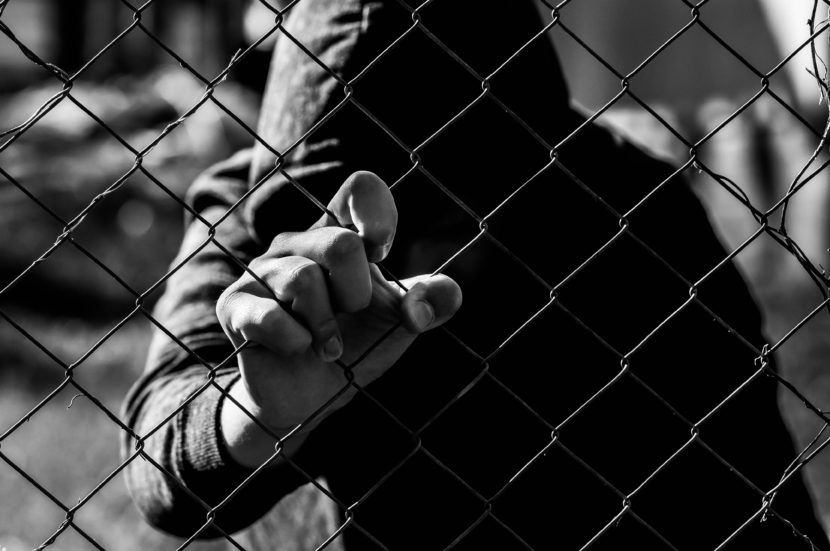In France, the number of incarcerated minors has sharply increased in recent years. In addition to the worrying rise in convictions, conditions for imprisoned minors do not always respect the specific needs of adolescents. The deprivation of children’s freedom must be a last resort and, if they are imprisoned, they must always be held separately from adults. However, this requirement is not always met, which has disastrous consequences for the development, health and safety of juvenile prisoners.
The legal context surrounding the imprisonment of minors
France has committed to several international agreements, including the Convention on the Rights of the Child adopted by the United Nations. This treaty stipulates that children deprived of their freedom must be held separately from adults, unless this conflicts with the best interest of the child (CRC, 1989).
Similarly, the United Nations Standard Minimum Rules for the Treatment of Prisoners [also called the Nelson Mandela Rules] highlight the need to establish separate facilities for minors and adults (Mandela Rules, 2016). Consequently, French national legislation complies with this requirement, specifying that minors be kept separated from incarcerated adults.
Facilities for minors incarcerated in France
Reality differs from these laws. French prisons provide specific facilities to accommodate incarcerated minors. There are two types of facility for juvenile prisoners: closed educational centres and youth units. The former are specialised prisons for minors, whilst the latter are units reserved for minors within prisons that hold adult inmates (DD, 2019).
However, it has been noted that, in many prisons, the separation between minors and adults it not as watertight as the law requires. In 2019, there were 47 youth units in France, which held 75% of incarcerated minors. Living in such close proximity, the risk of encounters between adults and minors is incontestable, despite the demands put in place by the law (Peron, 2019).
Cases of contact and negligence
Several reports by the Inspector General of Prisons show that instances of contact can become frequent in the daily life of prisoners, particularly during walks. For example, at the Villeneuve-lès-Maguelone remand centre, although minors live in the youth units, their exercise yard is visible from the adults’ cells and adjoined to their yard, separated by a strip of land and some fencing. Hence exchanges are easy and occur frequently during walks.
Detained minors, pressured by adult inmates, frequently climb the fencing that separates the two exercise yards to retrieve packages thrown into the neutral zone, in exchange for a reward (tobacco, a share of the loot etc.). Moreover, the control post used to monitor the exercise yard is not positioned in a way that allows the fence separating the two yards to be seen (CGLPL, 2015).
Challenges in medical and psychiatric services
Furthermore, in addition to these contacts and exchanges of goods, detained minors often share medical services with adults, one of which being psychiatric care. Specially adapted hospital units are liable to welcome juvenile detainees suffering from psychiatric disorders, but they provide neither specially adapted support nor separation between minors and adults (CGLPL, 2021). In these circumstances, there are no measures adapted to the situation of minors, who are subjected to a regime designed for adults.
Children should instead be hospitalised in wards appropriate for their age and separated from adults (CGLPL, 2021). The CGLPL reiterates that detained minors requiring psychiatric hospitalisation must be admitted to a child psychiatry ward. For this reason, suspension of sentences on medical grounds or the lifting of pre-trial detention should be encouraged. Adults’ concerns and questions relating to how institutions function too often take precedence over consideration of children and adolescents’ needs in relation to their age and development (DD, 2019).
Disastrous consequences for the rights of incarcerated adolescents
Such a situation has direct consequences on the respect of juvenile detainees’ rights. Faced with this hardly watertight separation, minors are subjected to instances of control and violence. For example, minors are more vulnerable to physical and sexual abuse when they are detained with adults. They could be subjected to violence, exploitation, and coercion by older, more experienced detainees.

Additionally, the stress and fear of living with adults can worsen mental health problems, bringing anxiety, depression, and other psychological disorders, which may not be adequately treated afterwards (CGLPL, 2021; Péron, 2019). Furthermore, minors may lack the appropriate educational opportunities for their age group, as well as the professional training and rehabilitation services designed to help them reintegrate into society.
Solutions are possible
Guaranteeing the separation of these populations is crucial to protect the wellbeing of minors and conform to international human rights standards. The French carceral system must take an educational approach targeting the rehabilitation of young people, rather than a repressive, punitive approach. More specifically, the French authorities could invest more in the development of infrastructure by constructing new facilities adapted to the needs of minors, or even by renovating those that already exist.
A concrete example of a measure introduced to improve the circumstances of youths in prison in France is the Prison Education Programme (Programme d’Éducation en Milieu Carcéral). This programme was developed to provide educational opportunities to juvenile detainees by creating a structured environment adapted to their specific needs. The government could also emphasise the importance of community and civil society by collaborating with community organisations, NGOs and local businesses to provide support, mentoring and opportunities to young prisoners.

Humanium is committed to protecting children’s rights, which involves being firmly opposed to any infringement of the rights of incarcerated teenagers. Your contribution is valuable. Consider volunteering, becoming a member, or making a donation if our mission is important to you.
Written by Jeanne-Marie Quashie
Translated by Katie McCullagh
Proofread by Alex Macpherson
Bibliography:
Assemblée Générale des Nations Unies, Convention internationale relative aux droits de l’enfant (20 Novembre 1989), récupéré de UNCHR à https://www.refworld.org/legal/agreements/unga/1989/en/18815, consulté le 6 Juin 2024.
Assemblée Générale des Nations Unies, Ensemble de règles minima des Nations Unies pour le traitement des détenus (Règles Nelson Mandela) (8 janvier 2016), récupéré de UNCHR à https://www.refworld.org/legal/resolution/unga/2016/en/119111, consulté le 6 Juin 2024.
Commissaire aux Droits de l’Homme, Les enfants et la justice des mineurs : pistes d’amélioration (2009), récupéré du site du Conseil de l’Europe à https://rm.coe.int/16806da5e6, consulté le 6 Juin 2024.
Le Contrôleur général des lieux de privation de liberté, Rapport de la deuxième visite du centre pénitentiaire de Villeneuve-Lès-Maguelone (Hérault) (2015), récupéré du CGLPL à https://www.cglpl.fr/2017/rapport-de-la-deuxieme-visite-du-centre-penitentiaire-de-villeneuve-les-maguelone-herault/, consulté le 6 Juin 2024.
Le Contrôleur général des lieux de privation de liberté, Rapport d’activité (2018), récupéré du site du CGLPL à https://www.cglpl.fr/2019/rapport-dactivite-2018/, consulté le 6 Juin 2024.
Le Contrôleur général des lieux de privation de liberté, Les droits fondamentaux des mineurs enfermés (2021), récupéré du site du CGLPL à https://www.cglpl.fr/2021/les-droits-fondamentaux-des-mineurs-enfermes/, consulté le 6 Juin 2024.
Le Défenseur des Droits, Enfance et violence : la part des institutions publiques. Consulté sur le site du Défenseur des Droits (2019), récupéré du site Défenseur des Droits à https://www.defenseurdesdroits.fr/rapport-annuel-sur-les-droits-de-lenfant-2019-enfance-et-violence-la-part-des-institutions consulté le 6 Juin 2024.
Peron, Iris. Mineurs en prison : le Défenseur des droits s’inquiète de l’«emprise» des détenus adultes (2019), récupéré du Parisien à https://www.leparisien.fr/faits-divers/mineurs-en-prison-le-defenseur-des-droits-s-inquiete-de-l-emprise-des-detenus-adultes-19-11-2019-8196444.php, consulté le 6 Juin 2024.


